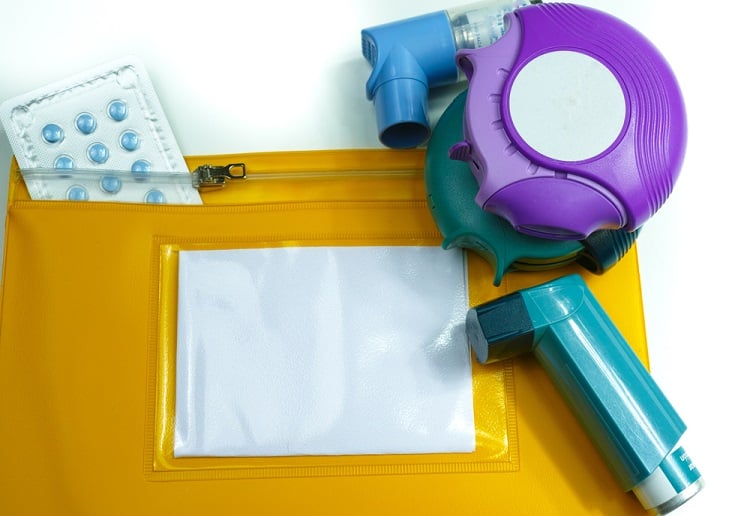Parents are calling for new warning labels on a common asthma medication that has been linked to cases of suicidal thoughts and depression.
Montelukast or Singulair, is prescribed for children aged two to 14 with frequent intermittent, mild persistent or exercise-induced asthma.
Melanie told ABC news her six-year-old son Harrison suffered what his doctors called “a psychotic breakdown” after being on Singulair.
Melanie said her usually friendly, affectionate child began flying into uncontrollable rages, upending furniture and gnashing his teeth with his face contorted with rage.
“I was incredibly shocked when I realised that a little chewable tablet to control his asthma symptoms could possibly be linked to such severe psychological symptoms.”
Vanessa Sellick’s said her son, also named Harrison, had been taking the drug since he was two years old.
She said it changed his behaviour and the problems became worse as he got older.
“Harrison was four years old when he started making comments about wanting to die, wishing that he was dead, that he was a piece of garbage – he had terrible self-loathing,” Ms Sellick said.
His doctors believe he suffered a reaction to the medication.
One day he acted on his suicidal thoughts.
“It was just devastating at the time,” Ms Sellick said.
“There’s no doubt in my mind that he actually wanted to end it, he wanted to end the pain. I think he was just a little boy in terrible emotional stress.”
Both mothers have said they were not given any warnings of these side effects by their doctors.
What do the experts say?
Figures obtained by the ABC show between January 2000 and March 2016, the Therapeutic Goods Administration (TGA) received almost 90 reports of psychiatric events in children and adolescents treated with the medication.
Among the adverse events were eight reports of suicidal thoughts and eight reports of depression.
Paediatric respiratory physician Adam Jaffe from Sydney Children’s Hospital told ABC there was no way of knowing which children might suffer a reaction to the medication.
He stressed the majority of patients could take it safely but said some children would suffer the psychiatric side effects.
“Obviously it’s devastating if you are that one child and that family, so it’s very important to highlight that and certainly that’s my practice,” he said.
Professor Jaffe said he suspected some Australian doctors had become complacent about the risks of the drug and needed to be reminded.
A company spokesman said pharmacists had a “duty of care to offer and provide consumer medication information to patients”.
Australian health authorities said prescription medicines did not generally have warning statements on the box or cartons because warnings were detailed in the product information.
“There is an expectation that the prescriber explains the risks and benefits to the patient,” a TGA spokesperson said.
If you suspect your child may be suffering a reaction please speak to your health team.
The Asthma Council advises patients should not stop taking their medication without consulting their doctor first.
Share your comments below.




















-

-
-
june11 said
- 03 Oct 2016
-

-
-
mom134803 said
- 18 Sep 2016

-

-
-
mom90758 said
- 06 Sep 2016
-

-
-
mom160421 said
- 06 Sep 2016
-

-
-
lspew said
- 06 Sep 2016
Post a comment10:29 pm
1:12 pm
9:13 pm
2:47 pm
1:20 pm
To post a review/comment please join us or login so we can allocate your points.